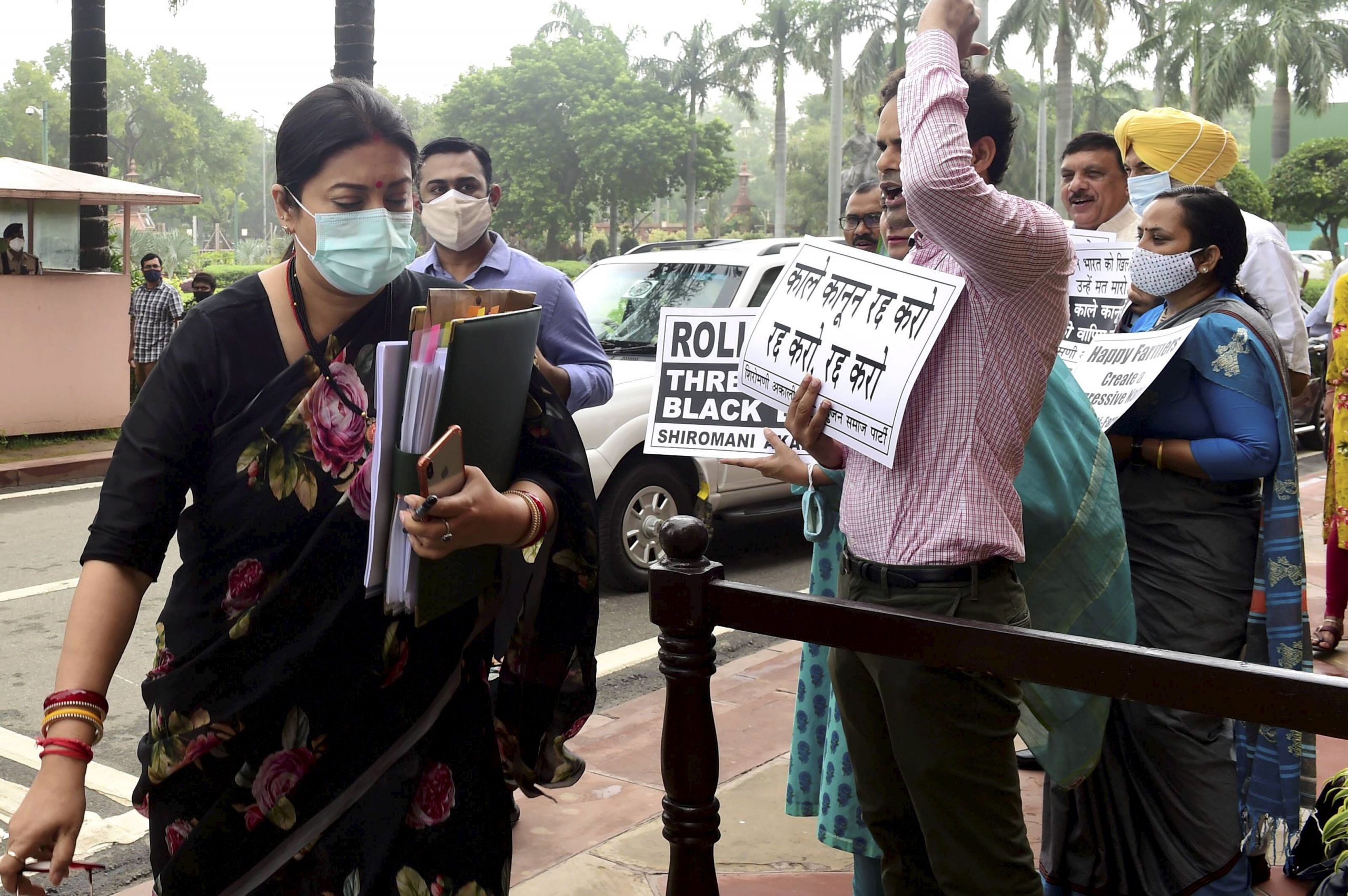Amid the ongoing controversy about Fabindia, in 2015, Union Minister Smriti Irani claimed to have found a camera pointing towards the trial room of an outlet located in Candolim, Goa. As many as four people were booked in the case.
Nevertheless, it is not the only controversy that revolves around the ethnic-wear chain. It flaunts being one of the top ethnic wear stores in India. With over 300+ outlets across the country and over-priced clothes and accessories, the store has made its way into the upper-middle and higher-income groups with its sparkling advertisements.
The 2015 hidden camera case:
On April 3, 2015, Union Minister Smriti Irani spotted a CCTV camera positioned towards the changing room. It was placed in a way that it could record illicit videos. Reports suggest that she immediately informed her husband about the camera and then called the local BJP legislator Micheal Lobo.
Also read: What does Jashn-e-Riwaaz, tagline of Fabindia’s festive collection, mean?
He later filed a complaint at the local police station based on which an FIR was registered against four Paresh Bhagat, Raju Payanche, Prashant Naik and Karim Lakhani, Hindustan Times reported.
The four were arrested and later granted bail by the court. They were booked under IPC sections 354C (voyeurism), 509 (intrusion into privacy) and IT Act’s section 66E (capturing, publishing image of the private area of any person without his/her consent). On April 12, it was reported that the Police had zeroed down to Bhagat as the main accused as he had the password for the DVR.
Another case of ‘secret filming’ was caught in Kolhapur outlet:
A similar incident was reported on March 31, 2015, where a salesman at Kolhapur outlet was arrested by the Police for secretly filming a female customer. In her complaint, she alleged that when she was trying on clothes, Ispurle had placed his mobile phone in video recording mode in the gaps between the trial room door and the floor.
When she noticed the phone, she immediately raised the alarm, after which Ispurle pulled the phone out and deleted the videos. During the investigation, Police found that Ispurle was caught on CCTV filming the woman. He was arrested, and a case was filed against him under Section 354C of the IPC.
Also read: Jashn-e-Riwaaz controversy: FabIndia withdraws ad after right-wing backlash
Illegal use of the word ‘Khadi’:
In 2018, the Khadi Commission or Khadi & Village Industries Commission, Govt. of India had sued Fabindia for using the Khadi brand without permission. KVIC had demanded Rs. 525 crores in damages from the ethnic wear retail outlet for illegally using the trademark Charkha and selling apparel under the khadi tag. When the company was first sued by KVIC, they said the claims made against them were baseless, and they would fight them in court.
However, later in the month of June, KVIC moved to the court, and things started to fall apart for Fabindia. In August 2018, Fabindia said it would not use the word Khadi or any trademark related to Khadi in any of its collections and would inform KVIC in advance if it would want to use it. As of now, the case is still pending in the Bombay High Court.
Also read: Zomato executive stirs up row by asking customer to speak Hindi, terminated
The feud between KVIC and FabIndia started in 2015 when KVIC sent a legal notice to the company warning against the use of Khadi trademarks. Fabindia replied that it had stopped the use of the word Khadi and its trademarks in the advertisements. However, in 2017, KVIC learned that Fabindia kept using the trademark and name despite the undertaking. A fresh legal notice was sent that further led to the court case.
It is noteworthy that the government body KVIC has acted against over 1000 private firms, including Fabindia, for misusing the brand name “Khadi” and taking unethical advantage of the brand’s goodwill.
The recent ‘Jashn-e-Riwaaz’ ad controversy:
Recently, Fabindia launched a campaign to promote its Jashn-e-Riwaaz collection for the festival season that revolves around the Hindu festival Diwali. Interestingly, FabIndia did not use the word “Diwali” or “Deepavali” or mention the Hindu festival at all in the campaign.
The trick to possibly secularize the Hindu festival did not go well with the netizen, and a fierce campaign was launched by Netizens collectively against the brand.







